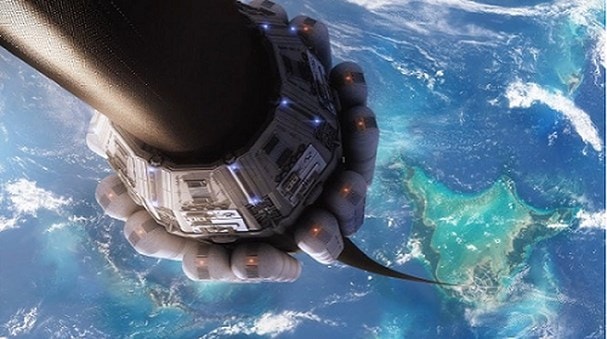Elevator from Earth to space station to be tested soon
Japanese scientists will test a project to build an elevator to the International Space Station in the next few days.
A team of researchers from Japan's Shizuoka University, in collaboration with several other organizations, will test a space station elevator project on September 11.
Specifically, two small cube-shaped satellites with sides of 10 cm connected by a cable about 10 m long will be transported from Tanegashima Space Center in Kagoshima, Japan to the International Space Station ISS. While flying in space, the two satellites will separate from each other to test the cable's durability. This entire journey will be recorded on each camera mounted on each satellite.
 |
| The space elevator project will be tested in the next few days. Photo: Supplied |
However, this space trip will face many obstacles and risks. Scientists will have to consider a possible collision when a meteor or space debris suddenly hits, the transmission of electromagnetic waves from Earth to space and ensure that the cables used in the experiment are resistant to energy rays from outer space.
This test is highly anticipated as it will provide the information needed to develop a space elevator system as well as fine-tune the designs and parameters for a full-scale version of the technology.
Scientists from Japan have previously mentioned plans to use carbon nanotechnology to send people into space by 2050 via robotic vehicles equipped with linear motors. These vehicles act as elevators that are expected to reach the ISS space station in eight days at speeds of 200 km/h via a 96,000 km long cable system. The project is estimated to cost about $90 billion.
This project is expected to replace the form of transporting people and goods from Earth to space at a more reasonable price. Currently, the cost of sending a cargo ship to space is about 22,000 USD/kg. With the space elevator, that number will drop to 200 USD.





